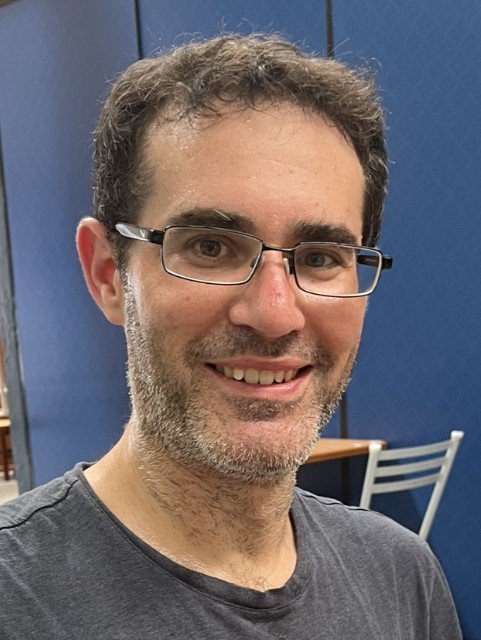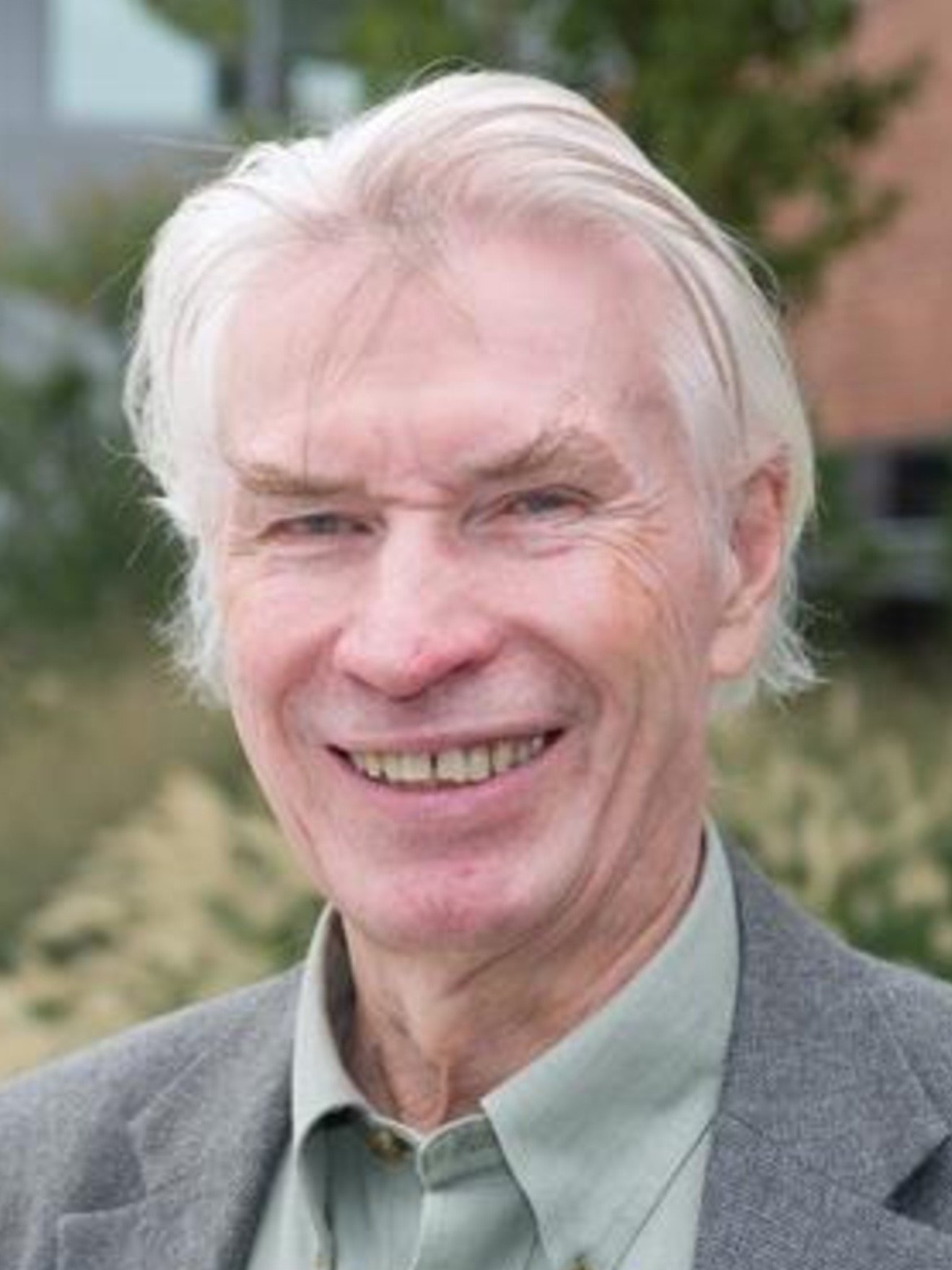We’re planners, community activists, academics, business people and property owners working toward equitable and sustainable mobility for all Atlantans.
We inform and organize Atlantans and our leaders to create a world-class mobility system.
Board of Directors
-
Born and raised in Atlanta, Walter Brown has from a young age looked forward to a more progressive, and less car-centric hometown. As a dual citizen of the Netherlands, he’s been inspired by the Dutch transportation system – in contrast to our own development patterns. Walter worked for decades in state and local governments and for nonprofits. Currently, he’s a green building and urban design consultant. He also was a co-founder of Green Street Properties (the developers of Glenwood Park) and served as a senior vice president at Jamestown Properties during the development of Ponce City Market. Putting sustainable development concepts into all his commercial real-estate projects, he has had the privilege of completing many award-winning green buildings and places in Atlanta and throughout the U.S. His current passion is micro-mobility and the future of sustainable transit in Atlanta in general and on the Beltline in particular.
-
Kevin H. Posey is a writer, consultant and social media manager focused on sustainability in transportation and urban development. He has worked with major universities in the United States and in the Netherlands, both directly and with affiliated organizations. Born in the Washington, D.C., area, he has lived on and off in Atlanta for a combined total of nearly 20 years. This was broken up by periods in Columbus, Ga., the northern Virginia suburbs, and the Dutch city of Groningen. He holds a B.S. in Management from Georgia Tech and a M.A. in Political Science from Georgia State University. While in Alexandria, Va., he served on boards dealing with local and regional transportation policies, as well as major redevelopment proposals. He co-wrote the Complete Streets resolution adopted by the city and chaired its Transportation Commission. He has written on transportation policy issues for a variety of media outlets including Atlanta’s own Saporta Report. In 2019, Saporta Report published his article, “Saving the BeltLine: A Shift from Transit to Micromobility.” In it, he called for a parallel path instead of a streetcar to alleviate growing pedestrian conflicts with those on bikes and other micromobility.
-
Matt Eckmann is an IT professional with a passion for transit and sustainability. He has been using MARTA trains and buses on a daily basis since moving to Atlanta around two decades ago to study at Georgia Tech. He resides near the Beltline in the Old Fourth Ward and uses the path frequently for walking, cycling and riding scooters with friends and family. Matt is an active board member at the Ethical Choices Program, an organization that provides education for students to make more informed and sustainable food choices.
-
Ken Edelstein was among the first Atlanta journalists to advocate for the Beltline. He urged residents in a 2005 editorial to vote for the tax allocation district that funded the ambitious project. At the time, he also warned that “transit is the weakest argument for the Beltline. For one thing, it doesn’t go where today’s Atlantans need to go.” He believes a need for transit in other parts of the city, the popularity of electric bikes and the Beltline’s success in its current form has made the argument for a streetcar even weaker. In 10 years as editor at Creative Loafing, Ken led a staff that won more than 20 national awards and built the publication’s audited readership to over 400,000. For the last 15 years, Ken has spent much of his time covering green design and construction, particularly as it relates to climate change. He’s also a longtime civic leader in Candler Park, where he’s served as neighborhood president, helped found the Candler Park Conservancy and chaired Candler Park Fall Fest.
-
Howard Wertheimer is a sought-after speaker and strategic adviser with specific expertise in sustainable urban and campus development through the holistic integration of architecture, engineering, operations, maintenance and fiscal stewardship. He is nationally recognized for leading Georgia Tech’s journey toward a sustainable campus from 2006 to 2019. As institute architect and assistant VP for capital planning and space management, he oversaw campus master planning, landscape planning, historic preservation, sustainability initiatives and public art curation. Among Georgia Tech’s achievements during Howard’s time as institute architect: The design and completion of more than 25 LEED-certified buildings, including five that attained LEED Platinum, and of the Kendeda Building for Innovative Sustainable Design, which is a fully certified Living Building and one the most environmentally advanced buildings in the world. Before joining Georgia Tech, Howard spent 21 years at Lord Aeck Sargent, where he was a principal and partner focused on technically sophisticated, sustainably designed higher-education facilities. Later, he served as executive vice president and chief operating officer of the Piedmont Park Conservancy. Currently, he is on the faculty at the School of Architecture at Georgia Tech.
-
Cheneé Joseph is a community development professional with years of experience in project management, and community and real-estate development. She is president and CEO of the Historic District Development Corporation, Atlanta’s oldest surviving community development corporation, which has spearheaded nearly four decades of pioneering urban revitalization work in Atlanta’s Sweet Auburn neighborhood. She also is past chair of the Beltline Affordable Housing Advisory Board, which provides guidance to Invest Atlanta and the City of Atlanta on the goals and policies related to the use of the Beltline Affordable Housing Trust Fund, and monitors the location and availability of affordable housing throughout the Beltline. She serves as chair of Clean Sweep Frederiksted in St. Croix, U.S. Virgin Islands, and treasurer of Canopy Atlanta. Cheneé also is a 2023 German Marshall Memorial Fund Fellow, a graduate of the Urban Land Institute Center for Leadership, LEAD Atlanta and the Atlanta Jewish Committee’s Marvin Goldstein’s Project Understanding. She received her bachelor’s degree in journalism from Georgia State University and her master’s degree in building construction from the Georgia Institute of Technology.
-
Hans Klein is an associate professor in the School of Public Policy at Georgia Tech. His research focuses on policy processes around transportation and the Internet. He has served as a policy analyst for the Transportation Research Board National Academy of Engineering and was vice-chair of the Federal Advisory Committee to Congress and the U.S. Secretary of Transportation on Intelligent Transportation Systems. His 2023 article, “A Streetcar on the Beltline would be a train wreck”, catalyzed public debate over rail on the Beltline.
Advisory Board
-
A storied Atlanta tech entrepreneur, Charles Brewer founded Mindspring Enterprises, which grew to be one of the largest internet service providers in the country. It became known for the core values he crafted on how to treat employees and customers. After Mindspring, Charles became a developer of walkable communities. He founded Green Street Properties, which created Glenwood Park, a neighborhood located along the Beltline, which was awarded the prestigious Congress for the New Urbanism Charter award in 2003. Charles was an early critic of Beltline rail, warning that the route was not a good one for transit but was a great one for trails and parks. Since 2006, his main passion has been Las Catalinas, a compact, car-free walkable resort town in Costa Rica.
-
The entry for “doer” in Webster’s should have Ann Cramer’s photo next to it. She’s served in intown nonprofit leadership positions for more than 50 years but is renowned for working in the trenches. Retired from IBM as director for corporate citizenship and corporate affairs in the Americas, she continues her civic work, with a focus on equity, education, social justice, children, families, and breaking the cycle of generational poverty. The nonprofit boards on which she’s an active member are too numerous to list, as are the awards she’s been given for her service. She may be the only living Atlantan with three civic awards named in her honor: the Young NonProfit Professional Network’s Ann Cramer Civic Leadership Award. The Techbridge Ann Cramer Volunteer of the Year Award and the Atlanta Business Chronicle’s Ann Cramer Leaders in Corporate Citizenship Lifetime Achievement Award.
-
As a planner, urban designer, architect and teacher, Mike Dobbins has practiced mainly in the public sector over the last 50 years. He has directed planning, design and development programs in New York City, New Orleans, Birmingham and UC-Berkeley, and he served as Atlanta’s commissioner of planning, development and neighborhood conservation during the Olympics era. Educated at Yale, he has taught at Columbia, Tulane, Birmingham Southern College, UC Berkeley and, for the last 27 years, as a professor of practice in the School of City and Regional Planning at Georgia Tech’s College of Design. He bases his practice on the belief that ordinary people can, will and must be active participants in improving the shape and livability of our urban environment. In these chaotic times, the interplay between the private sector, the government and the citizenry is out of balance, tilting away from meeting everyday people’s needs. Guided by reliable information, trust and common sense, people across class, race, gender and age must insist that meeting their needs – with an emphasis on those whose needs are greatest – lies at the base of public policy and action.
-
Inman Park resident Sharon Gay is a longtime advocate for transit and urbanism in Atlanta. She was a founding board member of the Georgia Regional Transportation Authority, chaired a coordinating committee of state transportation agencies that was formed to facilitate commuter and passenger rail, and served on the board of the rail advocacy group Georgians for Passenger Rail. She also is a past chair of Livable Communities Council of ULI-Atlanta and Atlanta Neighborhood Development Partnership, a founding board member of the Historic Fourth Ward Park Conservancy and a current member of ULI’s affordable housing task force . As a public policy attorney, she uses her expertise in land use, zoning and economic incentives to facilitate the creation of new urban places. She played an instrumental role in the development of Ponce City Market, Atlantic Station, Madison Yards and Krog Street Market and the revitalization of downtown Atlanta. She has worked with local governments and developers throughout the state to create tax allocation districts to provide funds for community redevelopment and affordable housing. Early in her career, Sharon served as vice president for governmental affairs at the Metro Atlanta Chamber of Commerce and as deputy chief of staff and executive counsel to the mayor of Atlanta.
-
Renee Glover is a purpose-driven thought and business leader with special expertise in affordable housing. She is known internationally for ushering in reforms at the Atlanta Housing Authority that helped to change the national conversation about public housing and economic development. As its CEO for 19 years, Renee, working with private sector real estate development firms, reimagined the community development model. She oversaw the transformation of the authority’s dilapidated housing projects into more than 16 mixed-use, mixed-income communities. Those projects leveraged each AHA tax dollar with at least $10 from the private sector and other public funding sources, resulting in a $3 billion economic impact and an improvement in quality of life of more than 50,000 residents. Among other reforms, she negotiated comprehensive regulatory changes; privatized business functions in a way that improved customer service and efficiency; and transformed the AHA from a chronically dysfunctional authority, on the verge of receivership, to become a high-performing, nationally recognized, mission-driven, diversified real-estate company. Renee is currently serving on several public, not-for-profit and private company boards.
-
Old Fourth Ward homeowner Jennifer Bentson Hubert helped to organize her neighbors when she learned the Atlanta Streetcar was set to dominate her narrow residential street on its way to the Beltline. Jennifer has lived in Atlanta and worked as a consultant for more than 20 years, with a focus on higher education administration. She now works at Georgia Tech, where her responsibilities include the integration of planning with strategic resource management, financial oversight, analytic support for decision-making and the optimization of financial systems. She’s the parent to two children who graduated from Atlanta Public Schools, where she served in various capacities as a parent leader. She helped to found Better Atlanta Transit after initially serving as co-leader of a group of O4W residents who felt their concerns about the Atlanta Streetcar Extension were not being addressed by MARTA and city leadership.
-
Julia Neighbors is a 22-year resident of the Old Fourth Ward. For more than two decades, she has advocated for children and families through her work in the nonprofit, private and public sectors. She currently is the director of the Institute of Continuing Legal Education at the State Bar of Georgia. Julia’s civic work has included serving on the boards of Georgia Court Appointed Special Advocates, the Georgia Department of Juvenile Justice and the Historic District Development Corporation. Julia has a passion for equity in education. She is a former chair and was a long-time board member of the Council of Intown Neighborhood Schools and a founding board member of the Hope-Hill School Foundation. She previously served as the chair of the Education Committee for NPU-M, where she and a coalition of residents advocated for O4W children to attend Inman (now David T. Howard) Middle School. You can often find her hanging out on her porch, visiting with neighbors and friends.
-
Bill Bolling is co-founder, board chair and senior advisor of the Food Well Alliance, a nonprofit collaborative network working to build thriving community gardens and urban farms across metro Atlanta. Bill founded the Atlanta Community Food Bank in 1979 and served as its executive director until 2015. Under his leadership, the Food Bank distributed more than half a billion pounds of food and grocery products. He was instrumental in starting the Georgia Food Bank Association, through which he helped establish seven food banks serving more than 2,600 hunger relief organizations in every Georgia county. In 1986, he founded the Atlanta Regional Housing Forum, where the community comes together to strategize around affordable housing. Bill sits on the boards of the Arthur M. Blank Family Foundation, the Inspire Brands Foundation, and the Andrew Young School of Policy Studies at Georgia State University. He was inducted into Georgia Trend Magazine’s Most Influential Hall of Fame in 2015 and was named Georgia Trend’s Georgian of the Year in 2012. His impact extends beyond Georgia to the U.S. and across the globe. He is a frequent speaker on topics related to hunger, poverty, affordable housing and public policy reform.
-
Jeff Rader is widely recognized for his work to incorporate comprehensive planning principles into major decisions in metropolitan Atlanta. In 2004, he was a member of Alex Garvin’s team for the Trust for Public Land’s landmark BeltLine “Emerald Necklace” study, which established linear parks connected by pathways as the Beltline’s driving land-use imperative. Recently retired after four terms as a DeKalb County commissioner, Jeff served before that as planning director at Georgia Regional Transportation Authority and vice president for transportation policy at the Metro Atlanta Chamber of Commerce. At the Chamber, he steered business leaders into adopting a strongly pro-transit and smart growth agenda. In private sector and public roles, and in elected office, his signature achievement has been to advance clear, inclusive public interests in response to challenges posed by rapid growth and a changing world. Jeff is a fellow of the American Institute of Certified Planners, as well as a German Marshall Fund Fellow. He also has been named a Common Cause Democracy Award recipient and Citizen Action’s “Citizen of the Year.”
-
Jereme Sharpe is on a mission to move people, places, things, and ideas onto the right track and towards a brighter future.
Mr. Sharpe is an Organizer, Civic Leader, Entrepreneur who stands at the intersection of government, development, and community, fostering partnerships between public and private sectors so as to champion progressive policies which shape cities for the better.
For over a decade, Mr. Sharpe has been involved in various industries such as mobility and real estate, held roles such as Strategy Director and Digital Cartographer, and worked with global brands such as BlackBerry, Compass, Porsche Design, and Carol's Daughter. This unique set of experiences is what equips Mr. Sharpe with a fresh perspective and balanced approach to everything he commits to.
As an Urbanist, Jereme has long supported projects and initiatives that promote housing diversity, alternative transit, and quality economic development. Jereme has participated in converting City streets into parklets, the grand opening of the Atlanta Streetcar, Atlanta City Studio sessions, and dozens of other efforts around good urbanism.
Currently, Mr. Sharpe serves as the Executive Director of the Castleberry Hill Community Development Corp. (CHCDC), Secretary of Neighborhood Planning Unit-M (NPU-M), and a Member of the Arts & Entertainment Advisory Council. His past engagements include roles on boards and committees such as the Atlanta Planning Advisory Board (APAB), Castleberry Hill Neighborhood Association (CHNA), Woodruff Park Advisory Committee, The QueensLink Board, and the Atlanta Pre-Arrest Diversion Board (PAD).
Originally hailing from Miami, Florida, Jereme now calls Atlanta, Georgia home, alongside his partner and canine companion, following a decade in New York City. He envisions one day establishing a café renowned for its delectable donuts and exotic teas, further enriching the communities he serves.


















